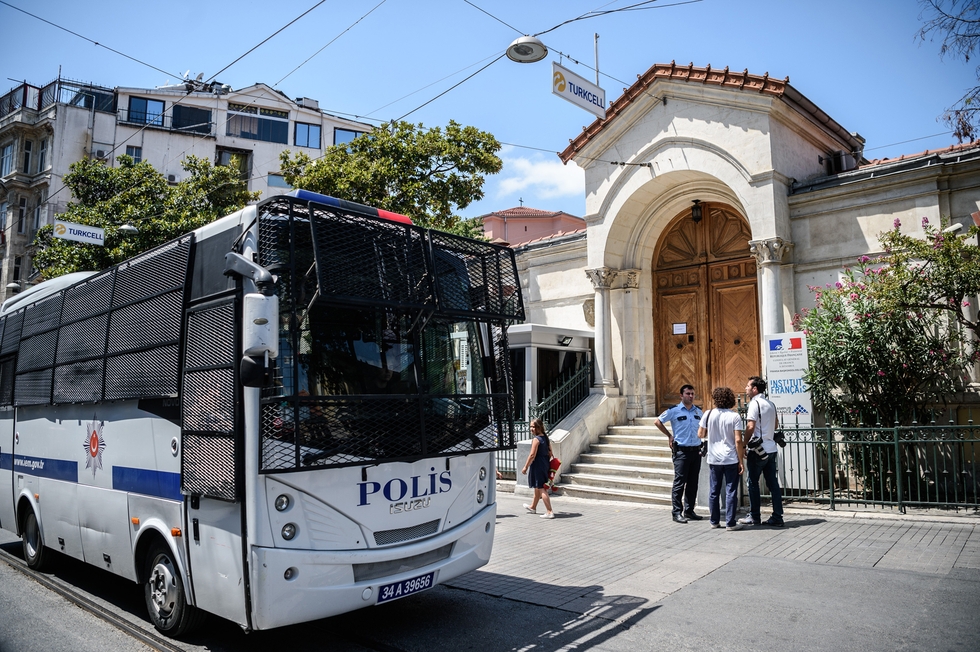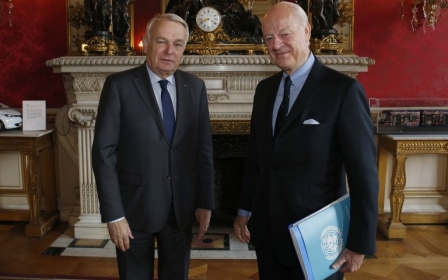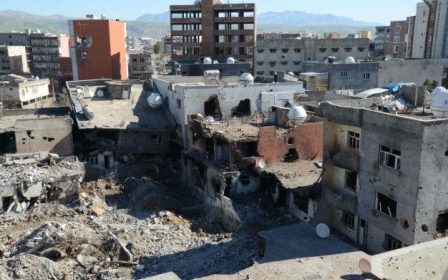France shuts down missions in Turkey after security threat

France closed its embassy in the Turkish capital Ankara and its consulate in Istanbul until further notice on Wednesday, after cancelling events to mark the 14 July Bastille Day holiday amid a "real and concrete" security threat.
The closures come with Turkey on edge after the triple suicide attack last month on Istanbul's main airport that was blamed on Islamic State (IS) group militants.
"The Embassy of France in Ankara, as well as the Consulate General in Istanbul will be closed from Wednesday July 13, 1:00 pm (1000 GMT), until further notice," the embassy said in a statement, after scrapping receptions at the missions on security grounds.
The doors were shut with a sign in French and Turkish saying the mission was closed for security reasons. Armed police patrolled outside.
France's consulate in Istanbul, its embassy in Ankara and its mission in the Aegean city of Izmir were all to have held celebrations marking the 14 July French national day.
French Foreign Minister Jean-Marc Ayrault said he had made the decision to cancel the receptions after receiving information about the imminent threat.
"The information which we received, and was confirmed by an exchange with the Turkish services, showed that there was a real and concrete threat," he told reporters in Paris, without giving further details.
Earlier, the Istanbul consulate sent an email message to French citizens in Turkey saying there had been "concurring information of a serious threat against the organisation of the July 14 celebrations in Turkey".
The 28 June attack on Ataturk International Airport raised new alarms about the security of foreigners in Turkey, attacks earlier this year blamed on IS and Kurdish militants.
Thirty-seven suspects have been arrested over suspicion of involvement in the attacks and belonging to IS. Of these, 15 are Turks and 22 foreigners, according to official media.
Authorities have said a number of citizens of ex-Soviet republics are among the suspects, raising concerns over the threat to Turkey from Islamist militancy in Central Asia and the Northern Caucasus.
Since the first Russian-Chechen war in the mid-1990s, Istanbul has been home to thousands of Chechen refugees, with reports suggesting that Chechens have used the Turkish metropolis as a base to recruit fighters and to recuperate from injuries after being wounded in Syria.
Thousands of foreign fighters from Europe, Asia and North Africa have flocked to Syria, Iraq and Libya to join IS. Turkey was initially accused of not doing enough to stop the influx, but since IS began launching attacks on Turkish soil last year, Ankara says it has stepped up security and worked to lock down its borders.
Tunisians have made up the single biggest group of foreign IS arrivals. Of seven suspects arrested earlier this week, three are Algerian, two Tunisian and two Egyptian, the state-run Anadolu Agency said.
Several foreign missions in Turkey, including the embassies and consulates of Germany and the United States, have closed for short periods this year amid security threats.
New MEE newsletter: Jerusalem Dispatch
Sign up to get the latest insights and analysis on Israel-Palestine, alongside Turkey Unpacked and other MEE newsletters
Middle East Eye delivers independent and unrivalled coverage and analysis of the Middle East, North Africa and beyond. To learn more about republishing this content and the associated fees, please fill out this form. More about MEE can be found here.




